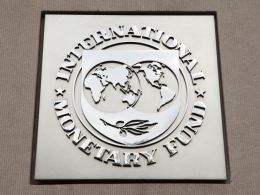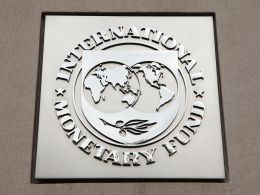
International Monetary Fund Publishes Paper on Virtual Currencies
The International Monetary Fund (IMF) has published a paper on virtual currencies in January 2016. The paper provides an exhaustive analysis of virtual currencies, covering everything from the basics, to legal and economic perspectives, and regulatory and policy changes among other topics. The paper distinguishes virtual currencies from other digital currencies by describing that “they differ from other digital currencies, such as e-money, which is a digital payment mechanism for (and denominated in) fiat currency. VCs, on the other hand, are not denominated in fiat currency and have their....
Related News
While presenting a new report about virtual currencies at the World Economic Forum, Christine Lagarde, the director of the International Monetary Fund (IMF) speaks for virtual currencies and their underlying technology’s potential to become a powerful tool. A new report by the International Monetary Fund praised the benefits and innovation that comes with virtual currencies. It calls for a balanced regulatory framework that should be mindful of the innovation at hand. IMF Managing Director Christine Lagarde presented the report at the World Economic Forum during the panel Transformation of....
The International Monetary Fund (IMF) has released a staff paper that examines the risks and use cases of virtual currencies such as bitcoin, recommending a balanced regulatory framework that will not stifle innovation. The report was presented by IMF Managing Director Christine Lagarde at the World Economic Forum in Davos during the panel "Transformation of Finance". Following an an overview of virtual currencies, the report goes on to look at the potential implications of the use digital currencies (a definition that includes mobile coupons and airline miles) as well as....
A new report from the SWIFT Institute has found that fiat currencies are more likely to crowd out digital currencies such as bitcoin. The paper, Virtual Currencies: Media of Exchange or Speculative Asset? [PDF] analyses the dynamic relationship between virtual currencies, such as bitcoin, and fiat currencies. The research looked at whether or not the design and the size of virtual currencies could pose an immediate risk to monetary, financial or economic stability. The paper found that fiat currencies are more likely to crowd out virtual currencies and that the design and size of virtual....
Thomson Reuters has published a white paper detailing the challenge for law enforcement with digital currencies and how they can be used for money laundering. The paper is mainly an educational article and serves as an introduction to the problem of money laundering and digital currencies. The paper starts by quoting the Financial Action Task Force (FATF), which is an international group involving 36 countries that money laundering is at the level of between two and five percent of global GDP, i.e. $1.38 trillion to $3.45 trillion. This is a rough estimate as, by the definition of the....
New and developing research from the International Monetary Fund suggests that central banks around the world need new legal definitions for tokenized currencies. On Friday, the International Monetary Fund published a new working paper on central bank digital currencies, or CBDCs, and their legal ramifications. In the paper, researchers including IMF legal counsel Wouter Bossu and Catalina Margulis argue that current frameworks are inadequate for issuing public-facing CBDCs. The researchers are particularly concerned about how existing definitions of money can apply to such a new....





